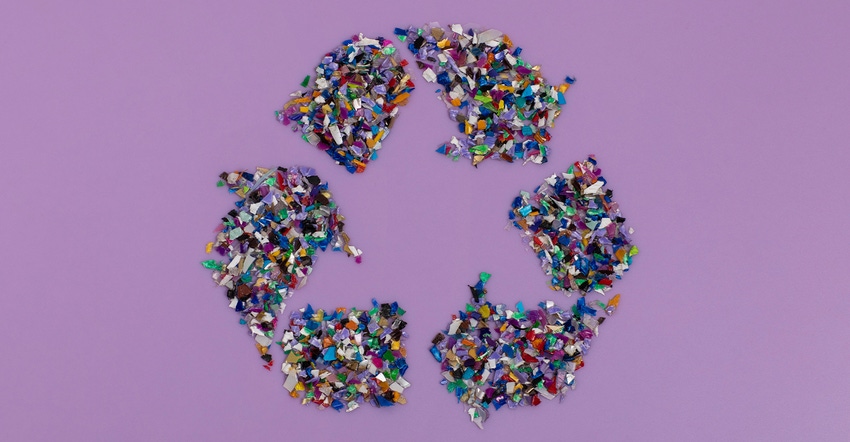The Realities of Plastics Recycling
Recycling is being harmed by claims plastics recycling is a “fraud."

Wow, I thought to myself. This room is packed. I saw virtually no empty seats. People were standing at the back and sides of the room. We were SRO!
I was moderating the recycling markets panel at last year’s Plastics Recycling Conference. As usual, current and future markets for recycled plastics were a hot topic. No one in the room believed plastics recycling was a fraud. After all, they made their living recycling plastics. They wanted to learn as much as possible about where their markets were heading.
Twenty-seven hundred people attended the conference. So many that new registration had to be closed because the facility was at capacity. The exhibition hall was packed with 222 exhibitors. Educational sessions weren’t all SRO, but most were heavily attended.
When I consider the number of people and exhibitors at the conference, I am baffled by the claims that plastic recycling is a “fraud”. According to Plastics News’ most recent ranking of Plastics Recyclers/Brokers, the top ten firms reprocessed 4.27 billion pounds of recycled plastics in 2022. Almost half were postconsumer plastics, the rest postindustrial. And that is just the top ten. That’s not bad for an industry that doesn’t exist.
Yet plastics recycling is under attack. The charge is raised by a number of anti-plastics organizations who have decided that discrediting plastics recycling will help make their case to end the use of plastic products.
Their campaign has been successful. I’ve gotten used to being asked by friends if their recyclables are being thrown away. This also happens when people I meet learn I am involved in recycling. They too want to know if all of their recyclables, not just the plastics, are being thrown away.
I don’t think the people who are claiming plastics recycling is a fraud intend to harm paper or metals recycling. I also don’t think they care. Any harm to paper and metals recycling is simply unfortunate collateral damage.
Plastic recycling didn’t exist in the early days of curbside recycling. This wasn’t due to a conspiracy. Instead, it reflected the reality that in 1970, the year of the first Earth Day, we didn’t use much plastic. They were only 2.4 percent of the waste stream, primarily consumer products such as transistor radio casings, hula hoops, Barbie dolls, contact lenses, Tupperware, IV and other medical equipment, furniture and nylon stockings. Plastic packaging was virtually nonexistent. It was mostly Saran Wrap, a cling film used to secure food in containers.
Recycling drop off centers and curbside collection programs ignored plastics. My recycling career began at EPA’s Source Separation Program in 1976. Our emphasis was on newspaper, glass bottles and metal cans. Newspapers were the focus of early curbside programs. EPA wanted to add glass and metal collection to the mix. Plastic was never considered and rarely discussed. It was too small to be on the radar.
We used more plastics by 1980 when they were 4.5 percent of the waste stream. Tonnage increased to 6.8 million tons from 2.9 million tons a decade earlier. Yet plastic packaging was still a rarity. The plastic bag did not come to this country until 1979. The HDPE milk jug wasn’t widely in use until the 80’s. The PET bottle became available to consumers in the late 70’s and took about a decade to make an impact. It wasn’t until 1990 that EPA data showed plastic recycling data.
Packaging remains the emphasis of plastics recycling. Yet, if we were to recycle ALL packaging right now, including bags and bottle tops and candy wrappers and mustard sachets and all of the rigid bottles and nonrigid flexible packages, the plastics recycling rate would be about 40 percent. So much more of the plastics in the waste stream are durable and so-called single use items that are so hard to collect and recycle. Yet they receive so little attention from the anti-plastics advocates. Except for some of the single use items such as knives and forks, they just aren’t as sexy as packaging.
I’m not saying that plastics recycling is all skittles and beer. It’s a tough business dealing with all of the different resins, products and markets. Global plastics overcapacity in production and a flood of off spec and wide spec industrial recycled resins and imported recycled plastic resins make the job even harder. Not to mention the problem of getting people to recycle the right plastic products. The ongoing barrage of claims that plastics recycling is a fraud isn’t helping.
Nor am I saying we should blithely ignore concerns over the impact of microplastics on the environment and our health. But we need to base our response on facts, not fears.
I don’t expect the anti-plastics organizations to say anything good about plastics recycling. They need to discredit it. But they should join me at next week’s Plastics Recycling Conference. You can be sure that I will be getting to the markets sessions early so that I can snag a seat with a good view of the power points.
About the Author(s)
You May Also Like




